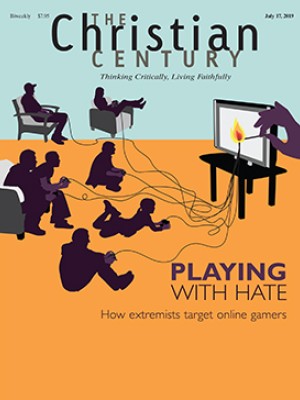US Catholic bishops revise policies for abuse cases, but laity input not required
Victims’ advocates say stronger measures are needed.
The US Conference of Catholic Bishops passed a slate of long-awaited measures designed to combat sexual abuse and hold church leadership accountable for mishandling cases. One change was creating a national hotline operated by an outside group for reporting incidents of abuse or their cover-up.
“I’m confident that the idea of doing [investigations] in-house is long gone,” said a cautiously upbeat Cardinal Joseph Tobin of New Jersey at the bishops’ spring meeting June 13 in Baltimore.
But the bishops stopped short of handing power to lay Catholics or abuse survivors in those investigations, sparking a debate that revolves around whether doing so would overstep guidelines outlined in a document issued by Pope Francis after a Vatican summit on abuse in February.
Read our latest issue or browse back issues.
Chicago cardinal Blase Cupich and others inserted language into the resolutions stating that metropolitan bishops—who would oversee the investigations of fellow bishops—“should” rely on qualified lay persons. The inclusion of lay people is also a moral “commitment” the bishops adopted on how to deal with sexual misconduct.
But the language doesn’t require bishops to take lay input, an important distinction that left victims’ advocates saying stronger measures are needed.
“Lay involvement should be mandatory to make darn sure that we bishops do not harm the church in the way bishops have harmed the church,” said William Shawn McKnight, bishop of Jefferson City, Missouri.
McKnight pointed to a section of Lumen gentium, one of the main documents of the 1964 Second Vatican Council, which, McKnight said, outlines the “obligation of the laity to be involved in the most important matters facing the church.”
“Who can deny this is . . . the most important matter now of our generation?” he said.
The resolutions are a far cry from proposals considered when the bishops last met in November, such as creating an independent nonprofit to oversee abuse cases—an idea shot down by Vatican officials, who said it superseded the authority of the pope.
The new reforms also did not impress advocates such as Becky Ianni, an abuse survivor and leader of the Washington, D.C., and Virginia chapters of the Survivors Network of those Abused by Priests.
Ianni argued that the systems created by the bishops are simply “setting up new policies where [the church] is going to investigate itself,” and that encouraging metropolitan bishops to appoint lay people to help with investigations is not the same as an independent process.
“Anytime they can handpick the lay person, then that’s not independence,” she said. “We would really like them to contact their local attorney general and get three to four suggestions for experts.”
In the meantime, she said, SNAP will continue to rely on civil authorities rather than the church to take action: “We have 20 attorneys general that are doing investigations. We’re going to put our emphasis on getting the other 30 states to do the same.”
Kim Smolik, CEO of Leadership Roundtable, a group consisting mostly of influential Catholic laity devoted to promoting better management in the church, said in a statement that she hopes the provisions are just the beginning of a lengthy process of reform.
“A new culture of leadership is necessary if we are to truly address the crises,” she said. “It starts by acknowledging the leadership failures, looking at the root causes, providing new formation in seminaries and other educational institutions, setting up governance structures with checks, balances, etc.” —Religion News Service
A version of this article appears in the print edition under the title “US Catholic bishops revise policies for abuse cases, but laity input not required.”






